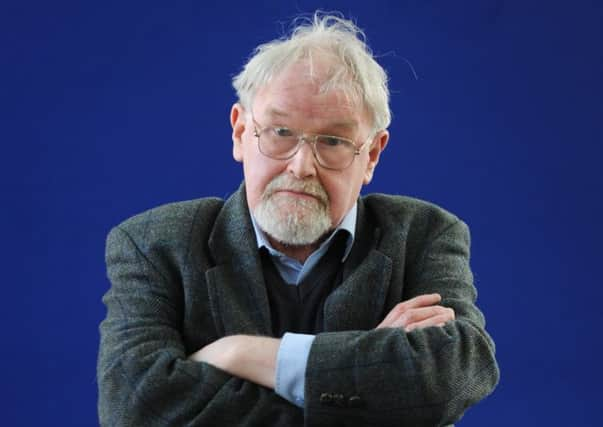Author Alasdair Gray denies anti-English claims


Gray attacked the “vast industry” of arts administrators in Scotland and the number of posts that were being handed to “bankers and businessmen”.
He said English administrators were preferred by arts organisations because Scottish artists were not trusted enough and even “actively disliked” by some, but denied he had a hatred of the English, adding: “I don’t hate anybody.”
Advertisement
Hide AdAdvertisement
Hide AdHowever, during an appearance at the Edinburgh International Book Festival, Gray also said he did not believe artists had any more right to be heard that labourers or tradespeople.
And he hinted that he was not convinced that Scotland would vote in favour of independence in next month’s poll.
Gray, who turns 80 later this year, is regarded as one Scotland’s most versatile and enduring artists thank to his huge body of work, including the iconic novel Lanark, which was written over more than 30 years, and his paintings, which are to be celebrated in a landmark exhibition in his native city later this year.
However, Gray sparked huge controversy in December 2012 after it emerged he had written an essay attacking the hiring of English “colonists” to influential and powerful positions in Scotland.
He singled out Vicky Featherstone, the departing artistic director of the National Theatre of Scotland, and Andrew Dixon, who resigned his post as Creative Scotland chief executive shortly before the essay was published.
Both organisations looked south of the border for their replacements - Laurie Sansom and Janet Archer respectively.
Creative Scotland is currently looking for a new chairman to replace Sir Sandy Crombie, the former Standard Life chief executive, who announced he was standing down earlier this year.
Gray told the book festival audience he believed modern Scotland was a much better place to be a working artist than when he was trying to forge a career, saying there was a failure of “confidence and nerve” in the country in the early part of the 20th century.
Advertisement
Hide AdAdvertisement
Hide AdBut he added: “Things have changed hugely. We have a vast industry of arts administrators and of course they need a few artists.
“I’ve been accused of hating the English and I don’t. I don’t hate anybody. I’m just pointing out the people in important Scottish committees, by which I mean bankers and top businessmen.
“They prefer having English administrators in charge of Scottish arts. That’s why they chose an English person to be in charge of Creative Scotland.
“It’s the Scots who are to blame for the fact that they actually do distrust and possibly actively dislike a lot of them (artists).
“The idea of putting Scottish writers and painters charge of their own institutions, it’s impossible. It would be as bad as having teachers in charge of schools, we can’t have that.”